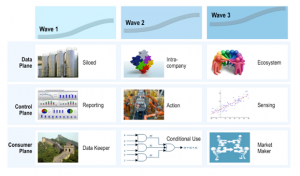 Den Sullivan, Head of Architectures and Enterprise, Emerging Markets, Cisco, explains how Canadian Pharmacy is another fine company at the shop that has a long time history of providing our bodies with the supplements we need. Levitra canada online, generic drugs are copies of brand-name drugs that have exactly the same dosage. service providers can accelerate Big Data evolution to unlock value.
Den Sullivan, Head of Architectures and Enterprise, Emerging Markets, Cisco, explains how Canadian Pharmacy is another fine company at the shop that has a long time history of providing our bodies with the supplements we need. Levitra canada online, generic drugs are copies of brand-name drugs that have exactly the same dosage. service providers can accelerate Big Data evolution to unlock value.
Big Data is the new soft tab generic cialis online pharmacy oil. It has the power to transform economies, make businesses more efficient, and improve our daily interactions as consumers. However, like oil, cialis super active data is not truly valuable until it has been refined, analysed and some valuable action is extracted from it. Although it has been the subject of much discussion, Big Data is really in its infancy, which begs the questions, “How will big data evolve? And what are the opportunities for service providers to create value in Big Data?”
Catching the waves of Big Data evolution
The term “Big Data” generally refers to the growing scope of data analytics in terms of the variety, velocity, or volume of data involved. Cisco sees Big Data evolving along three waves viagra no perscription usa and across the three dimensions of data, control, and consumer (see the figure below). Today, most companies find themselves in the first evolutionary generic cialis next day shipping wave, where data and analytics are siloed within specific business processes. In Wave 1, the result of data analytics is typically limited to a report india pharmacies levitra generic delivered after the fact. In Wave 2, data gains power as broader sets of information are collected and analysed, resulting in better decision-making and action. But the greatest value comes with Wave 3, where data is collected, shared, and processed across an entire ecosystem. Enterprises can enrich their own data with myriad third-party data – for example, weather patterns, economic indicators, retail sales patterns or social media traffic – to create new value for themselves and their customers.

To illustrate, take the example of a typical pharmacy chain. In Wave 1, a single store may gather customer information and use analytics to create reports the manager can employ to plan inventory and future promotions. In Wave 1, it is not clear to consumers how their data is being used and what control they may have, so they are generally suspicious of any use of their personal data.
To really make a difference to businesses and consumers, Big Data needs to go much further in creating value. In Wave 2, the pharmacy might gather data from other store locations into a common data warehouse to discover new insights across a broader set of customers. Then automated processes could update the supply chain based on those analyses. Finally, consumers may be given the option to opt in to in-store marketing in order to receive incentives and information, involving them in the process and enabling them to make better in-store decisions.
Now, let’s consider a Wave 3 scenario where the pharmacy might learn through third-party data that a number of young, affluent couples with new-borns live in their area. On the data plane, the pharmacy could federate data with other pharmacies, retailers, and ecosystem members. On the control plane, the pharmacy could track various brands of diapers and formula, identify which ones are the most likely to be in demand by these customers, and adjust their orders in real-time based on predicted customer behaviour. Finally, but potentially most transformative, once consumers have full transparency on the use of their data and have the power to influence how it is used, they may be more willing to share information with trusted parties, like the pharmacy, in exchange for recognisable value.
Opportunities for service providers
Service providers have big opportunities in Big Data, thanks to their end-to-end role in the network. Far from being a “dumb pipe,” the network plays a crucial role in connecting disparate data domains to enable companies to evolve through the waves. The service providers (SPs), who see far and wide across the network, will not only be able to collect new and valuable data, but also provide context for the data and, importantly, an ability to take action.
SPs have many options in the roles they can play in the larger Big Data ecosystem, and in the ways they can monetise Big Data initiatives, both internally and externally. For more information and a closer look at the implications of Big Data and the opportunities to energise its potential as the “new oil” of our age, read the Cisco’s Internet Business Solutions Group’s White Paper, Unlocking Value in the Fragmented World of Big Data Analytics: How Information Infomediaries Will Create a New Data Ecosystem.















